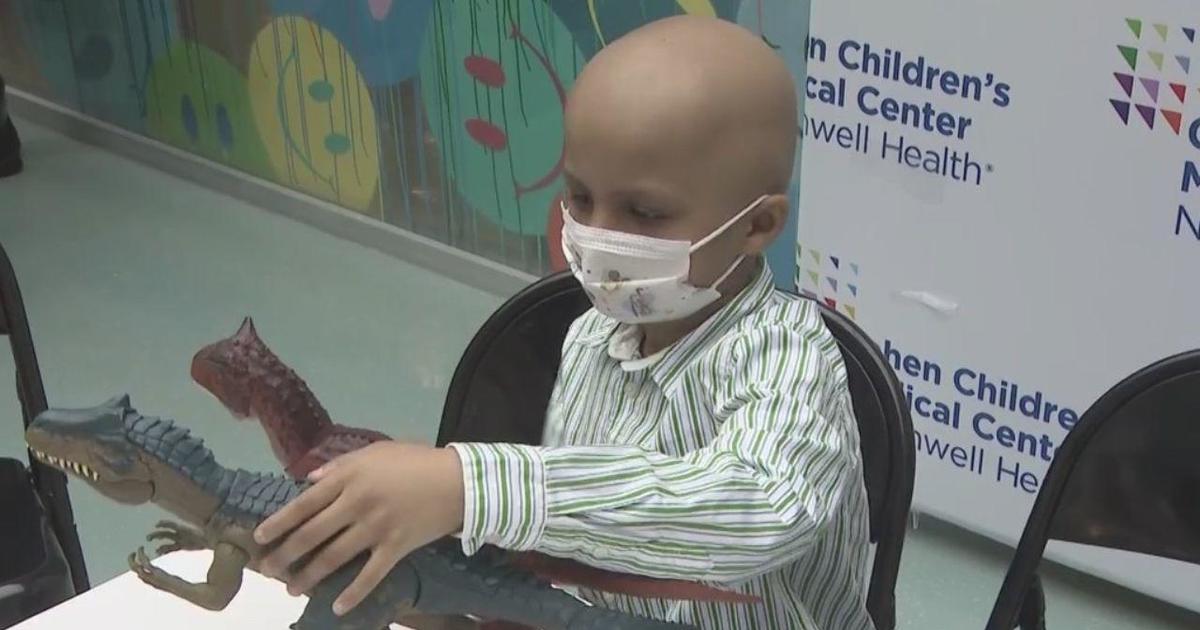Treatment For Colorectal Cancer From Sloan-Kettering
This paid content was provided by Memorial Sloan-Kettering Cancer Center. You are advised to consult with a physician or other professional healthcare provider prior to making any decisions, or undertaking any actions or not undertaking any actions related to any healthcare problem or issue you might have at any time.
------------------------------------------------------------------------------------
When the diagnosis is colorectal cancer, it's important to get the right treatment, right from the start. The choice of treatment depends on the stage of the disease (click here to open the Memorial Sloan-Kettering prediction tool) and can include surgery, radiation therapy, chemotherapy, and combinations of these approaches. At Memorial Sloan-Kettering Cancer Center, more than 20 colorectal specialists work together in a multidisciplinary team to provide the best possible clinical care for each patient's individual needs.
Surgery
Surgery is a common treatment for many stages of colorectal cancer. In cases where the cancer is found fairly early, removing the tumor can lead to a cure. Colorectal cancer patients are often concerned about preserving normal bowel, urinary, and sexual function after treatment. At Memorial Sloan-Kettering, we are continually developing and refining new techniques to maintain these functions in our patients who have colorectal surgery.
Laparoscopic Surgery for Colorectal Cancer
Our surgeons currently perform many colorectal operations laparoscopically. Using advanced technology and fiber optics, they can do complex procedures through small incisions. Compared to conventional open surgery, patients have fewer complications, recover more quickly, and can return to their usual activities sooner.
Surgery for Rectal Cancer
Small cancers in the rectum that have not grown through the wall of the bowel are often treated with surgery, sometimes followed by radiation therapy. Cancers that have grown through the wall of the rectum or involve the lymph nodes may require extensive and complex surgery. Memorial Sloan-Kettering surgeons have pioneered a way to remove the cancerous tissue without cutting the nerves that are involved in sexual and urinary function..
For some patients with localized rectal cancer, we offer a surgical procedure known as transanal endoscopic microsurgery (TEM), which minimizes treatment-related complications, avoids the need for a colostomy, reduces recovery time, and spares nearby nerves connected with urinary control and sexual function. A typical TEM procedure for rectal cancer takes about two hours, compared with three to four hours for a standard abdominal procedure. Also, patients receiving TEM can leave the hospital soon after the procedure, while the standard approach requires a week-long hospital stay.
As a result of treatment advances like these, 90 percent of patients treated at Memorial Sloan-Kettering do not require a permanent colostomy after rectal cancer surgery.
Surgery to Remove Metastases
Surgery may also be used to remove metastases -- cancerous tissue that has spread to other organs. Liver metastases are common in patients with advanced colorectal cancer. About 15 percent of patients have liver metastases when they are first diagnosed with advanced cancer, and 50 to 75 percent of patients with advanced disease go on to develop liver metastases. For these patients, surgical options may include removing part of the liver, or cryosurgery, where the tumors are frozen but not removed.
Therapy Prior to Surgery
Specialists at Memorial Sloan-Kettering assess patients with rectal cancer to determine if they would benefit from chemoradiation therapy before surgery. This can shrink the tumor, allowing them to reconstruct the bowel and usually avoid the need for a permanent colostomy. Using this technique has resulted in an overall cure rate of more than 70 percent for patients with rectal cancer.
Reconstruction for Quality of Life
Our surgeons have pioneered a reconstruction technique that builds a new rectum from a portion of the colon. This and other methods of rectal reconstruction are combined with ways to preserve nerves vital to sexual functioning. In men with rectal cancer, potency preservation rates are very high.
Alternative Treatment of Metastases
Interventional radiologists, who are specially trained doctors, perform image-guided, minimally invasive procedures to treat metastases from colon cancer, including those in the liver and lung.
When patients are not able to undergo surgery, we can offer alternative treatments, such as radiofrequency (RF) ablation. This technique uses a special needle to deliver localized heat that kills the tumor without removing it and without affecting parts of the body outside of the liver.
Investigational Approaches
We are constantly assessing new drug combinations for patients with colorectal cancer, ways to enhance quality of life after rectal cancer treatment, and the use of imaging procedures, such as PET scanning, to improve treatment planning.
Intrahepatic Pump for Advanced Colorectal Cancer
For patients whose disease cannot be treated with surgery, our physicians have pioneered a way to provide chemotherapy through an innovative pump that delivers drugs directly to the liver, rather than to the entire body.
At Memorial Sloan-Kettering Cancer Center, our scientists and clinicians generate new means to better understand, diagnose, and treat colorectal cancer. They are leaders in biomedical research and in translating the latest research to advance the standard of colorectal cancer care worldwide.
Our approach to treating cancer is most effective when we treat patients as soon as they are diagnosed, before they have surgery or other therapy. For newly diagnosed patients who have not yet been treated, appointments with a colorectal surgeon are available within two business days. For patients who have already had surgery or other treatment, wait times may be longer depending on the patient's particular needs. For an appointment, simply call 1-800-525-2225.
For more information on Memorial Sloan-Kettering's leadership in treating colorectal cancer, please visit www.mskcc.org.



